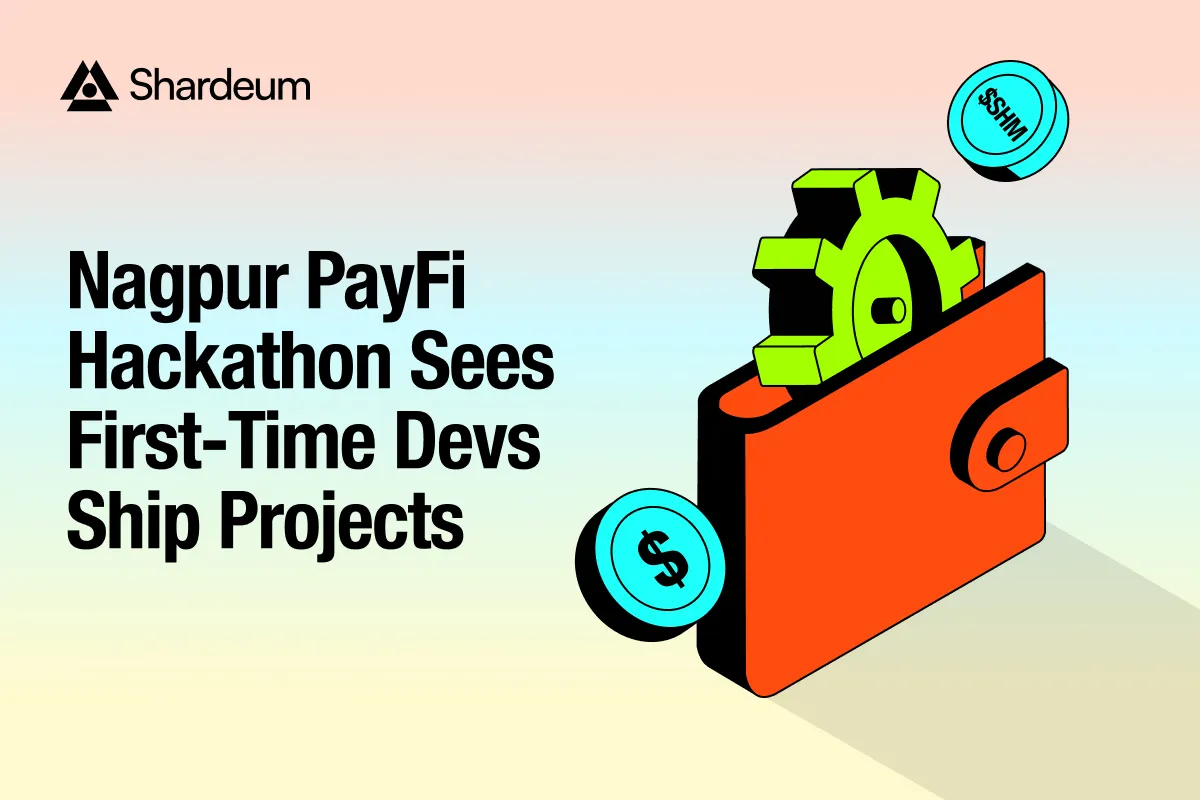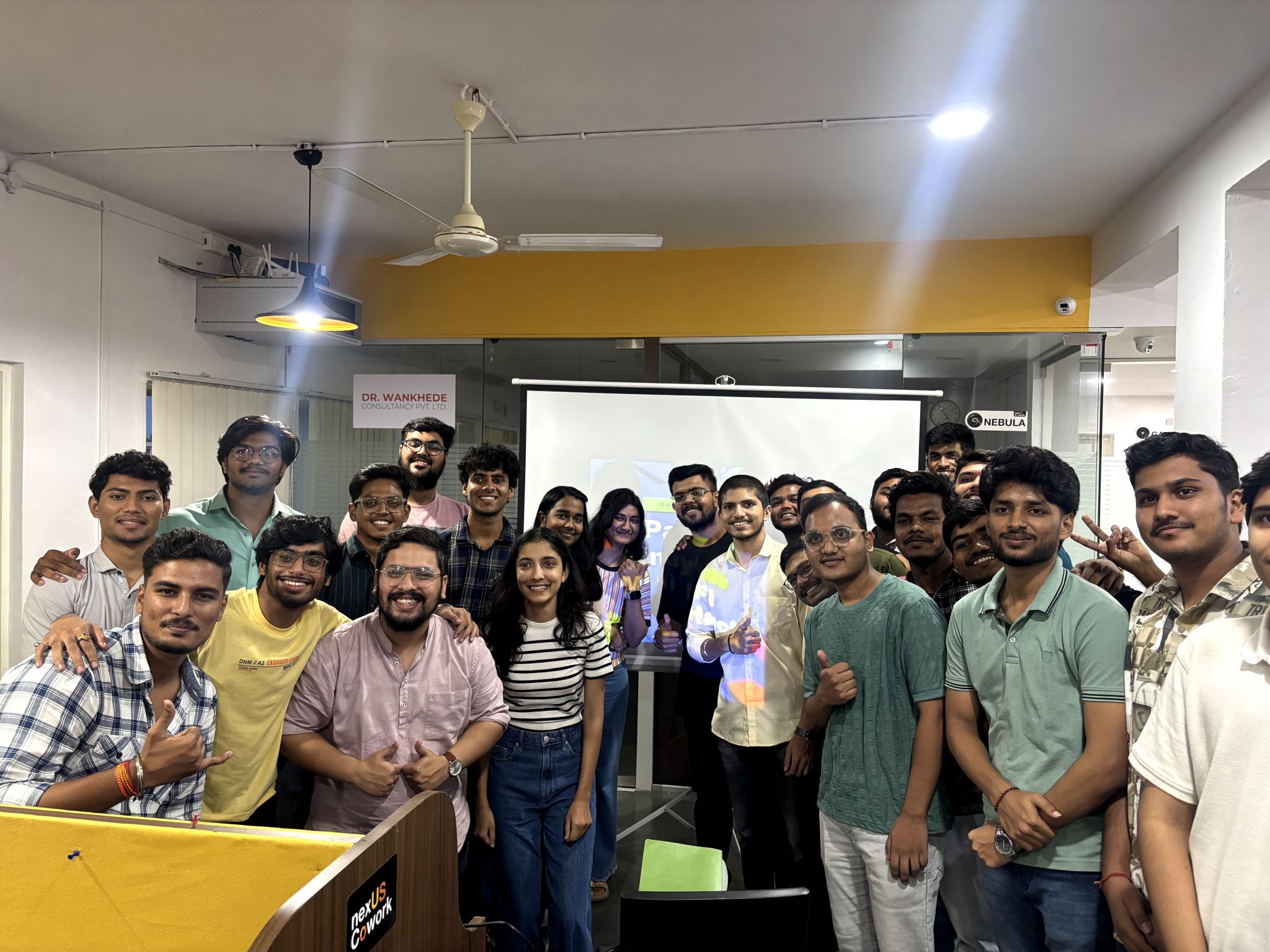
Shardeum Nagpur PayFi Hackathon Sees First-Time Devs Shine
Nagpur’s PayFi Hackathon saw 25+ builders deploy 10 projects on Shardeum, showcasing low-fee, scalable payments and onboarding first-time...

Nagpur’s PayFi Hackathon saw 25+ builders deploy 10 projects on Shardeum, showcasing low-fee, scalable payments and onboarding first-time...
Nagpur showed up. The rain tried to keep people home on July 13, 2025. But 25+ builders still walked into Nexus Coworking with laptops, curiosity, and a lot of questions about PayFi on Shardeum. By the end of the night, 10 projects were deployed, dozens of first-time hackers made their first on-chain transactions, and we walked away with momentum that now stretches across India, APAC, and Africa.

That last data point mattered. It meant we had to balance speed with guidance, and code with context.
PayFi is not just another buzzword. It is how we imagine payments and micro-transactions working at scale: low fees, instant finality, and a UX that feels like Web2 without sacrificing decentralization. Shardeum’s architecture makes this story believable, which is why our hackathons focus on shipping PayFi tools, not just pitch decks.
We kicked off with the basics: what Shardeum is, how it scales, and why it makes sense for payment use cases. We also introduced JSON RPC APIs so everyone knew how to actually talk to the chain.
We laid out judging criteria, expected outcomes, and timelines. Builders self-organized into roughly 10 teams. Some worked solo, some formed groups of four. The goal was to give the first-timers an idea about how hackathons usually function.
After the workshop, teams settled in for a six-hour build sprint. We moved table to table fixing deployment issues, clarifying JSON RPC calls, and suggesting basic UX improvements while reminding everyone to push code to their repos. Midway through, we broke for pizza, coffee, and a quick stretch, then the groups went back to finish their features before the demo session.
Each team presented its project, noted what worked and what broke, and outlined next steps. We gave direct feedback on architecture, feature choices, and how clearly they demoed the product.
Teams received an extra 48 hours to tidy code, fix bugs, improve documentation, or add small features they could not finish during the sprint. Submissions during this window were treated as final.
The real win was not just the number. It was seeing first-time hackers deploy working smart contracts and front ends in a single day.
This event proved that a lean, repeatable format can scale if the right local organizers take ownership.
For many, this was a first hackathon. So we invested time in explaining hackathon culture: ship fast, learn in public, and do not fear half-broken demos. By the end, people were not just hacking. They were talking about open source etiquette, commit hygiene, and how to turn a prototype into a product.
We also pushed everyone to share their work publicly. Photos were clicked, repos were posted, and builders joined our Telegram group to stay connected.
Huge thanks to Tushar Pamnani and Manav Lohbade for co-driving everything on the ground, to Nexus Coworking for the space, and to everyone who chose hacking over a lazy Sunday afternoon. You made the rain irrelevant.
If you were in the room, keep pushing your project forward. If you missed it, do not worry. There is another PayFi Mini Hack coming soon. Join the Unstablenet Discord channel by clicking the button below, keep an eye on announcements, and bring your idea to life on Shardeum. This is also a great opportunity for local hosts to discuss and organize events focused on building PayFi dApps. You can literally create wonders as an advocate of Shardeum.
Shardeum’s engineering team has created a starter suite of dApps and contracts for the community, known as the Shardeum DApp Playground. You can reference it to deploy your smart contracts, test features, and build dApps on Unstablenet.